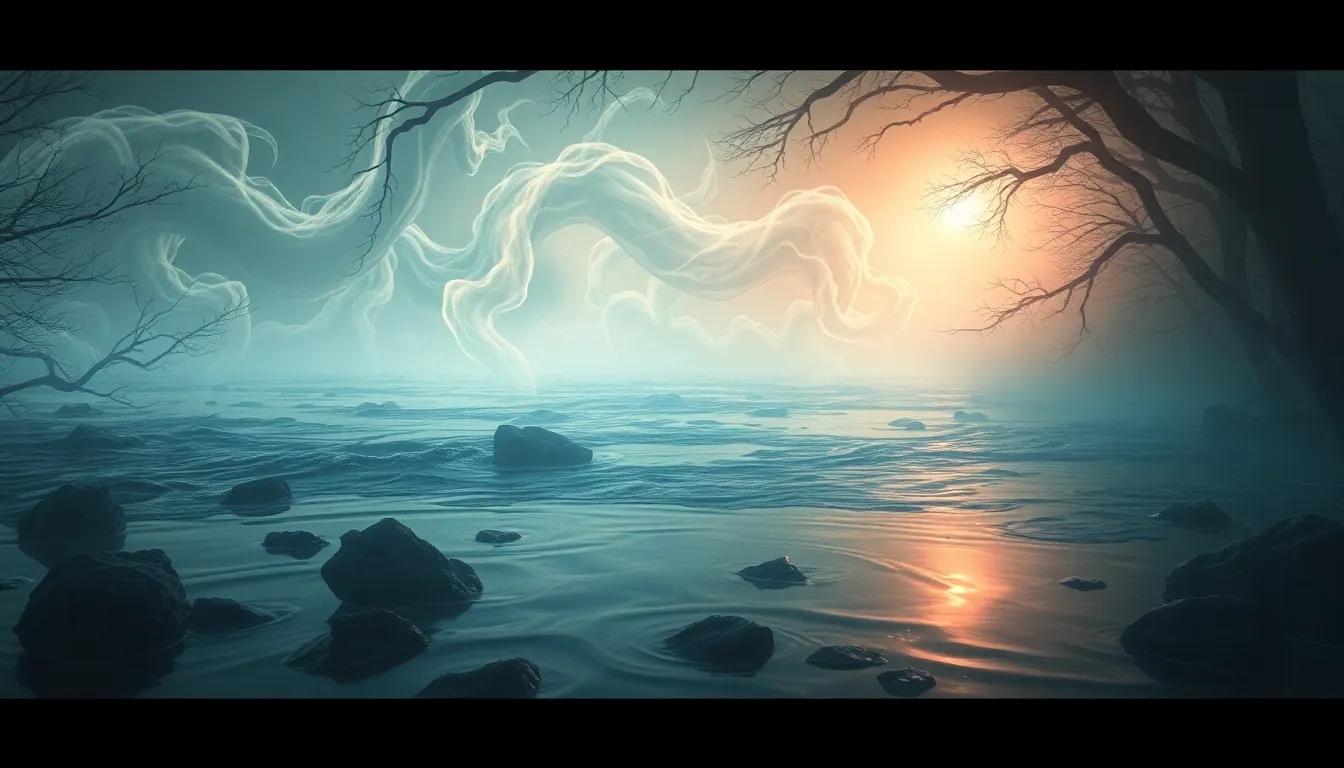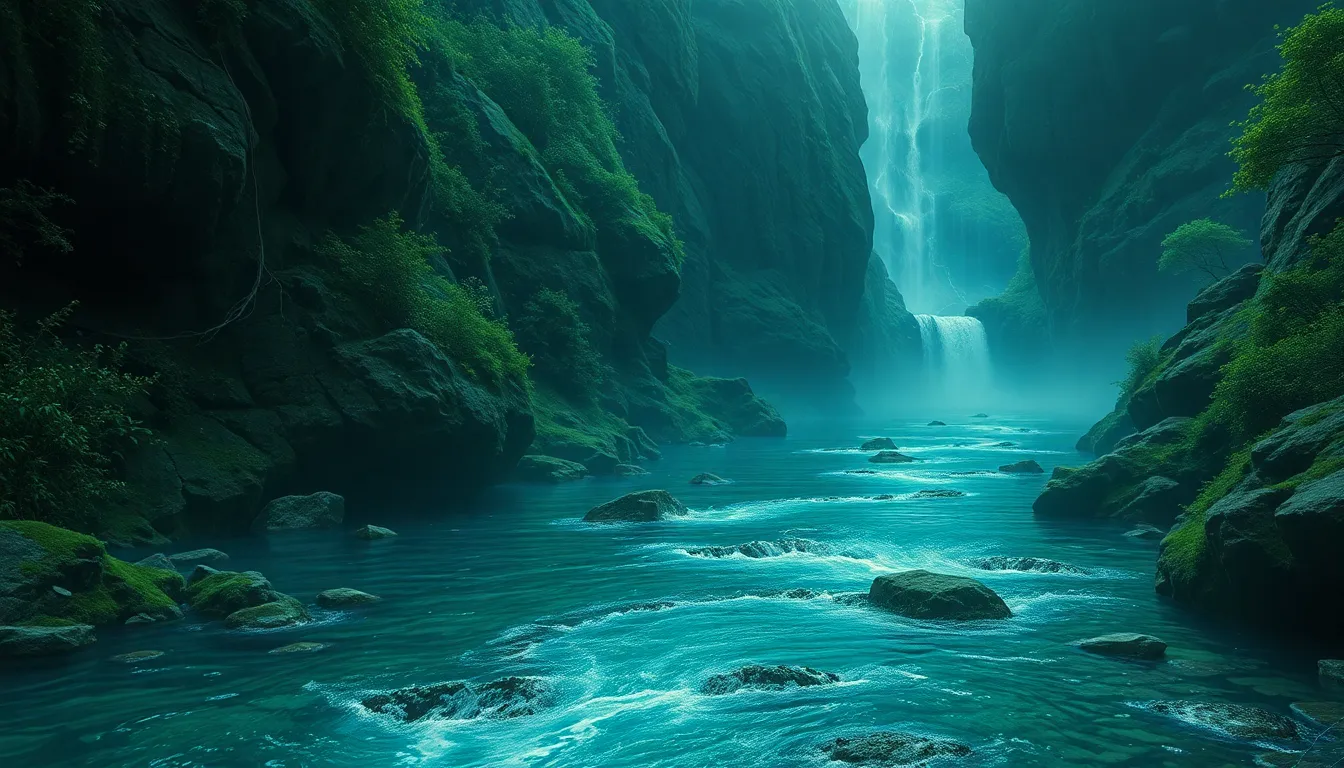The River of the Lost: Myths of Disappearing Travelers
Introduction to the Myth of the River of the Lost
The River of the Lost is a captivating legend that has woven itself into the fabric of various cultures around the world. This mythical river is often depicted as a treacherous body of water that lures travelers into its depths, leading them to disappear without a trace. The cultural significance of this myth lies not only in its intriguing narrative but also in its exploration of themes such as loss, mystery, and the unknown. Throughout history, the concept of disappearing travelers has fascinated humanity, prompting us to ponder the reasons behind their vanishing and the forces at play in our world.
Historical Roots of the River of the Lost
The origins of the River of the Lost can be traced back to ancient folklore, with early mentions found in various texts and oral traditions. Many cultures have their own versions of rivers that lead to oblivion or serve as gateways to other realms. For instance:
- In Greek mythology, the river Styx represents the boundary between the living and the dead.
- In Native American legends, there are tales of rivers that lead to the spirit world, often associated with the loss of loved ones.
- Celtic mythology speaks of rivers that can transport souls, intertwining nature with the mystical.
These myths share common themes—disappearance, transformation, and the unknown—which resonate across different cultures and epochs, highlighting humanity’s enduring fascination with the idea of vanishing into thin air.
Cultural Interpretations of the River
The River of the Lost is interpreted differently across cultures, each adding its unique flavor to the myth. In Native American traditions, the river may symbolize a journey to the afterlife, where travelers are guided by spirits. In contrast, Celtic folklore often depicts the river as a place of enchantment, where fairies and other mystical beings reside, occasionally leading travelers astray.
Asian cultures also have their interpretations, presenting rivers as pathways to enlightenment or as cautionary tales warning against the perils of straying from one’s path. The variations in these myths reflect the diverse ways in which different societies cope with the idea of loss and the mysteries of existence.
The Symbolism of Disappearance in Folklore
The act of disappearing holds deep psychological and emotional implications in folklore. It often represents a journey into the unknown, a transition from one state of being to another. The River of the Lost serves as a powerful metaphor for:
- The uncertainty of life’s choices and the potential consequences of wandering off the beaten path.
- The fear of losing oneself in the chaos of the world.
- The desire for escape from the burdens of reality.
In this context, the river becomes a symbol of life’s unpredictability, reminding us that the journey is fraught with risks and that the unknown can be both alluring and terrifying.
Notable Accounts of Disappearing Travelers
Throughout history, there have been numerous accounts and legends surrounding the River of the Lost. Some notable stories include:
- The tale of a group of explorers who vanished while attempting to map an uncharted river, their fate forever a mystery.
- A local legend of a fisherman who was drawn into the river’s depths during a storm, never to be seen again, yet his boat was found adrift.
- Reports of hikers who strayed from their trails only to find themselves disoriented and lost, recounting strange experiences along the riverbanks.
These stories have left a lasting impact on local communities, often leading to the establishment of cautionary tales that warn against the dangers of the river. They serve to keep the legend alive, ensuring that the mystery surrounding the River of the Lost endures.
The Role of Nature in the Myth
Nature plays a significant role in the myth of the River of the Lost. Rivers have long been symbolic in mythology, representing life, death, and the passage of time. They often evoke feelings of both tranquility and danger. The River of the Lost is no exception, as it embodies the dual nature of rivers:
- They can be sources of nourishment and life.
- They can also be treacherous and unpredictable, leading to danger and despair.
This inherent contradiction evokes a sense of mystery and fear, reinforcing the idea that nature is both beautiful and dangerous, a theme that resonates deeply within the context of the myth.
Modern-Day Interpretations and Adaptations
In contemporary culture, the myth of the River of the Lost continues to inspire storytelling across various mediums. It has been represented in literature, film, and art, often serving as a motif for exploring deeper themes. For example:
- In literature, authors may use the river as a backdrop for character development or as a catalyst for transformation.
- In film, the river may serve as a metaphor for a character’s journey, representing their struggles and eventual growth.
- In visual art, artists often depict the river as a mystical entity, capturing its beauty and danger through various styles.
These modern interpretations breathe new life into the myth, allowing it to adapt to contemporary themes while preserving its core essence.
Psychological Perspectives on the Myth
Exploring the psychological aspects of the River of the Lost reveals why such myths resonate with people today. The fear of the unknown is a fundamental aspect of the human experience, and disappearing represents a loss of control. The myth plays into our anxieties about:
- Isolation and abandonment.
- Fear of the unknown and what lies beyond our understanding.
- The inevitability of change and the passage of time.
These elements combine to create a compelling narrative that speaks to our deepest fears and desires, making the River of the Lost a powerful symbol in contemporary storytelling.
Conservation and Environmental Awareness
The legend of the River of the Lost also ties into modern conservation efforts and environmental awareness. As rivers face threats from pollution, climate change, and human encroachment, the myth can inspire interest in protecting these vital waterways. By invoking the mystique of the River of the Lost, communities can foster a sense of responsibility toward preserving natural landscapes, ensuring that future generations can appreciate their beauty and significance.
Conclusion: The Legacy of the River of the Lost
The myth of the River of the Lost endures as a testament to the power of storytelling in shaping our understanding of human experiences with loss and mystery. It reminds us of the uncertainties of life and the inevitability of change. As we reflect on this enduring myth, we recognize its relevance in our society, not only as a cautionary tale but as a source of inspiration for art, literature, and environmental advocacy. The River of the Lost continues to flow through our collective consciousness, inviting us to explore the depths of our fears and the beauty of the unknown.



